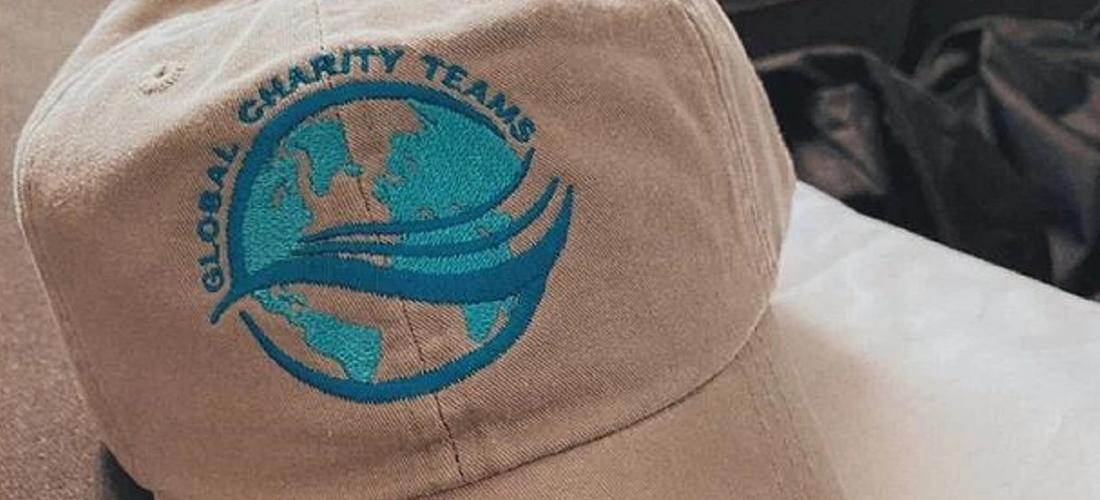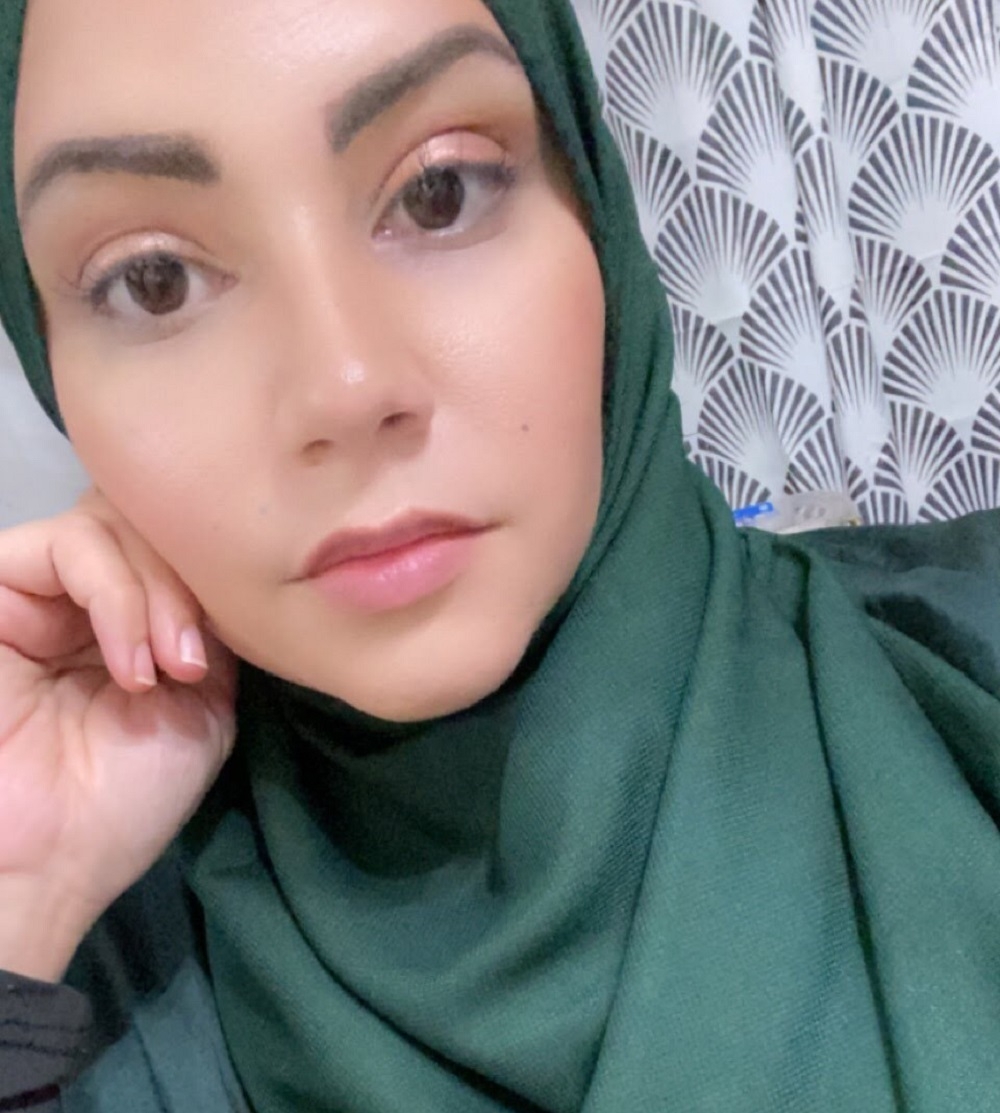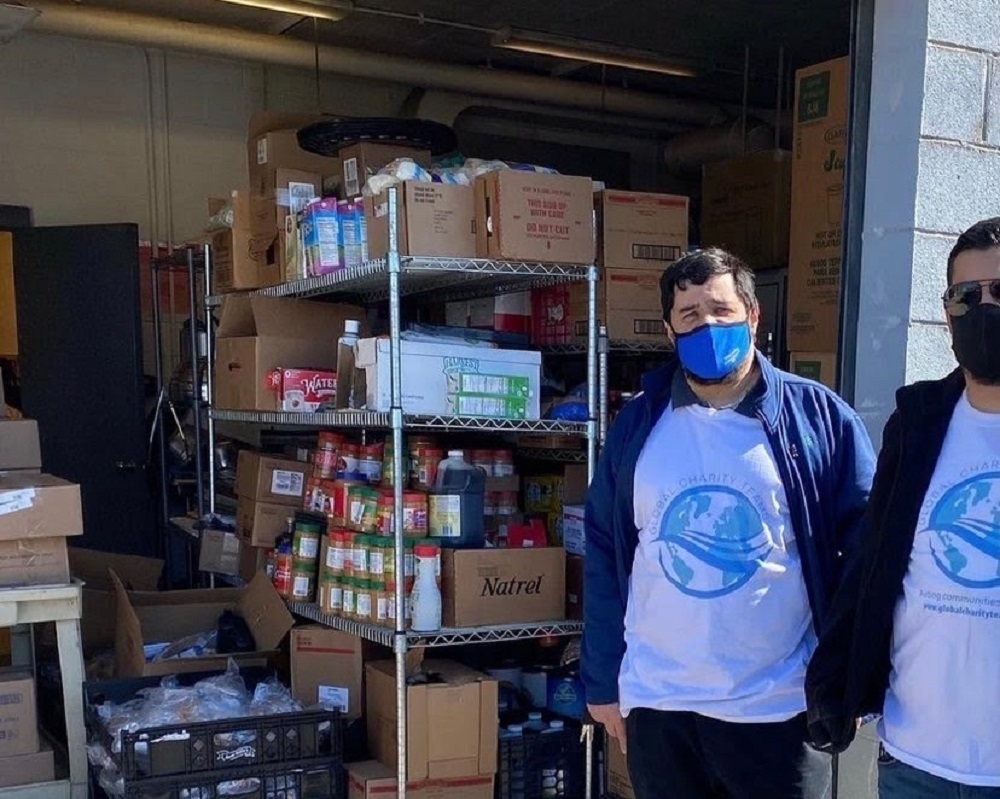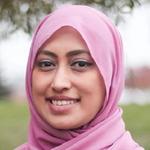How Being an Outsider Helps Nadia Montalvo Be a Safe Space for Those in Need
Community
|
Nov 10, 2021
|
6 MIN READ

Editorial note: All this month we are focusing on the stories of Muslim women working in charity, whether that’s as the head of a charitable organization, volunteer work or anything in between. We want to explore what drives these women to give of themselves to others, how they balance that in their lives and what advice they have to encourage others to take up work to help those in need.
In 2017 Albert Montalvo went to visit his father in Puerto Rico when Hurricane Irma devastated the islands. It was a Category 5 hurricane that caused widespread power outages. Two weeks later, while he was still there, Hurricane Maria further ravaged Puerto Rico and broke the islands’ infrastructure.
Albert felt torn about leaving his father and other Puerto Ricans behind in such conditions. While he was there, he helped as much as he could, purchasing basic necessities like gas and groceries for people. But he knew he had to return home at some point and didn’t know how he could leave his father and the island after such destruction.
In remembering those hurricanes and the damage they wrought, Albert’s daughter, Nadia Montalvo, says she remembers reflected upon how devastated her father felt.
“He left back [from Puerto Rico] to the State of Michigan, and he felt really bad to leave people in that condition. So he used money that his mother [had]l eft for him (after her death), and he created Global Charity Teams,” she says.
Global Charity Teams is a nonprofit organization founded in 2017 by Albert, focused on providing basic essentials to communities in need. The organization focuses on providing clean water, nutrition and personal and medical care products locally and internationally. The organization’s first fundraiser was collecting $1,000 to rebuild homes in Puerto Rico.
A few years later, Nadia took over as the director and secretary. Her sister took on the job of treasurer. Nadia says they began widening their scope of work and focusing on helping women, refugees, and low-income families in the Detroit area during the pandemic.
“When the pandemic hit we noticed a lot of families were going without meals that they would normally get from school. We began helping them with school backpacks, food distribution, and then venturing into helping the homeless by getting hygiene backpacks, blankets, hot meals and distribution for them as well,” Nadia says.
She says depending on the activity, there are 5-10 volunteers per project to do things like pack backpacks and pass out hot meals. During peak COVID months they passed out 200 hygiene backpacks, hot meals every 2-3 months and blankets to the homeless in the Metro Detroit area.
Nadia says she knows what it’s like to be low-income and is glad she can now give back.

Nadia Montalvo of Global Charity Teams
Growing up Puerto Rican Muslim
Nadia’s father was raised in New York. He converted to Islam when he was around 18-years-old while joining the army to get off the streets.
“He made prayer [one] night and told God, ‘Please guide me. If you don't go to me I'll never be guided.’ And he woke up in the middle of the night and saw a fellow soldier making something called wudu for prayer. He asked him what he was doing, and [the soldier] told him about it. And then he started explaining to [my dad] about the origin. And my dad asked him if he could pray with him. The soldier says, “Do you believe that there's one God and Muhammad is His Messenger? And, he said ‘yes’ and he took shahada.”
Albert has been Muslim for about 40 years now, says Nadia. Her mother converted a year after she married her father. She says her parents are among some of the first Puerto Rican Muslims in their generation. But, says Nadia, being a Puerto Rican Muslim means not quite fitting in anywhere while looking for ways to belong.
“I've always kind of felt like an outsider here in Hamtramck because we don't have a Hispanic community. And even in the Hispanic community, I don't really fit in because I'm Puerto Rican, Muslim, and most Puerto Ricans are Christian or Catholic backgrounds. So, that's a unique experience,” she says. But also I found the nonprofit [work and life] has been a benefit to me because a lot of people won't reach out to their own communities just because you know, reputation or shame that they get feedback. So they feel more comfortable going to someone outside of their community.”
How Being an Outsider at Times Can be Helpful in Charity Work
Nadia remembers when she was a child and her grandmother had a monthly subscription to donating money to a child in another country named Nadia, like her. Her grandma donated to muscular dystrophy and other causes. “It's instilled in my family – [helping] those less fortunate,” she says.
Nadia says being different comes in handy. Oftentimes people come to Global Charity Teams because they don’t want people from a similar background or culture to know that they need help.
For example a Bangladeshi single mom might not want to go to a community organization that is led by Bangladeshis for fear of guilt or shame. However, they may be more comfortable going to Nadia because she is a Muslim woman who will understand why help is needed without subjecting the person to the cultural norms or perceived shame of their own community.

Global Charity Teams founder (and Nadia's father) Albert Montalvo
Removing one barrier to getting help creates a unique opportunity for Global Charity Teams to help people who might otherwise be afraid to ask for help or not be able to get help from their own communities.
“I found the nonprofit has been a benefit because a lot of people won't reach out to their own communities because [they are worried about their] reputation or [unfortunately feel] shame. They feel more comfortable going to someone outside of their community,” Nadia says.
Global Charity Teams do conduct background checks on the people who request assistance and proof of financial hardship, but the identity is kept confidential and anonymous from the public. “We help anybody from any background, any religious background, any sexual orientation or low income. It doesn't matter what color your skin or your religion,” Nadia says.
Recently the nonprofit partnered with J&E Community Relief to remodel and repair a local private Islamic school, Al-Ikhlas Training Academy in Detroit, where Nadia was a former student. “So many alumni come from there – from engineers to those in the medical field to business owners. I think it was really time for the community to give back to them,” she says.
“I found the nonprofit has been a benefit because a lot of people won't reach out to their own communities because [they are worried about their] reputation or [unfortunately feel] shame. They feel more comfortable going to someone outside of their community,”
Nadia Montalvo
Nadia also partnered with KBK Relief for international projects resulting in four wells in Pakistan, two wells in Bangladesh, and three water tanks in Yemen. She says while helping out local communities is very important, people also care about supporting these projects to give back to their families back home.
“They know how fortunate they are to be in America, knowing what it's like back home,” she says. “It really helps us to grow our nonprofit when they see that we're not only helping their community here, but we're helping their family back home as well.” Nadia says she hopes more youth get involved in the work.
What Albert, Nadia, and her family demonstrate is that it all starts with one person or sometimes one family who wants to make a difference by taking that first step to give back and help others. That can lead to a community organization that has profound ripple effects, like providing food to Michiganders during the pandemic, helping Puerto Ricans build back their homes or building wells in Pakistan.
Global Charity Teams shows that it’s easier to connect to the community by tuning into its needs, lending a shoulder, and understanding the unique needs of communities that hope to have a better quality of life in the U.S., while still giving back to their loved ones in their home countries.
Nadia’s kids are part of the process and are learning firsthand what it means to give back, but she says she hopes more youth will get involved in the organization to help others.
It’s not just about the organization, but it’s about building community, she says.
“They are the future. We're starting the project, but they will continue and they'll continue the work that we're doing, and hopefully, you know, it'll all grow and it will all be on them. I think especially now the youth are so invested in our communities and politically. It's not like how it was in the past. So they're really invested in just everything going on in the community,” she says.
Subscribe to be the first to know about new product releases, styling ideas and more.
What products are you interested in?

